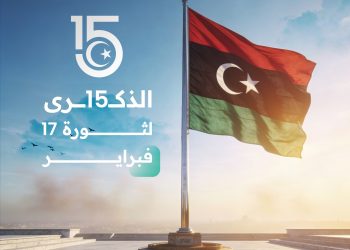By Houda Mzioudet,
Tripoli, 14 November 2013:
A roundtable was organised yesterday by United Nations Support Mission in Libya (UNSMIL) with . . .[restrict]the participation of the Ministry of Defence and UNDP.
Entitled “the role of Women in Dialogue and Peace Building”, it brought women and men form all walks of life including academia, civil society organisations, politics, EU and UN and media to discuss ways of empowering Libyan women in post-conflict Libyan society so that they can actively participate in political life.
The first session of the roundtable discussion revolved around the experience of Yemen as an example of a successful case study of women participation in a post-conflict situation.
Women can be a pressure tool and political force, which affect domestic peace, the participants unanimously said.
Yemeni Minister of Human Rights, Huria Mashhur, discussed national dialogue mechanisms in Yemen after the ouster of former president Ali Saleh. She noted the strong similarities between Libya and Yemen, mainly with the cultural and social barriers that hamper women from being decision-makers.
Two Yemeni women activists, Nabila Al Mufti and Shafika Saeed made presentations about Yemeni women experiences in national dialogue initiatives through their membership in dialogue committees and the importance of engaging women in the dialogue.
The roundtable hds invited Libyan women from different regions of Libya including Sebha and Ghadames to partake with the participants with their experiences. Success stories about the role of women in conflict resolution and dialogue included the Ghadames experience of Nesreen Al Noba, a human rights activist.
She had helped in the reconciliation between Tuaregs and Ghadamsi locals over the participation of the former in quelling rebellion against the Qaddafi regime, which used them as mercenaries.
Hundreds of Tuareg families were chased out Ghadames in 2011 and have been living in refugee camps in a nearby village ever since. Women from both camps were instrumental in easing up tensions and helping reconciliation, Al Noba explained.
Shahrazad Maghribi, a Libyan woman activist and founding member of a civil society organisation “Forum of Libyan Women” spoke about problems faced by Libyan women in achieving their potential, including the lack of professionalism. “Women are victims of violence here. We have to sit down and see what is wrong for women’s situation to improve,” she stressed.
Minister of Culture Habib Al Amin stressed the role of Libyan women historically and their participation since the independence, the use of Libyan women by the Qaddafi regime propaganda. He urged Libyan women to make the initiative to reclaim their rights, noting women’s active participation during the Libyan Revolution.
UNSMIL ran a similar workshop about the role of media in supporting women candidates in upcoming elections. [/restrict]






